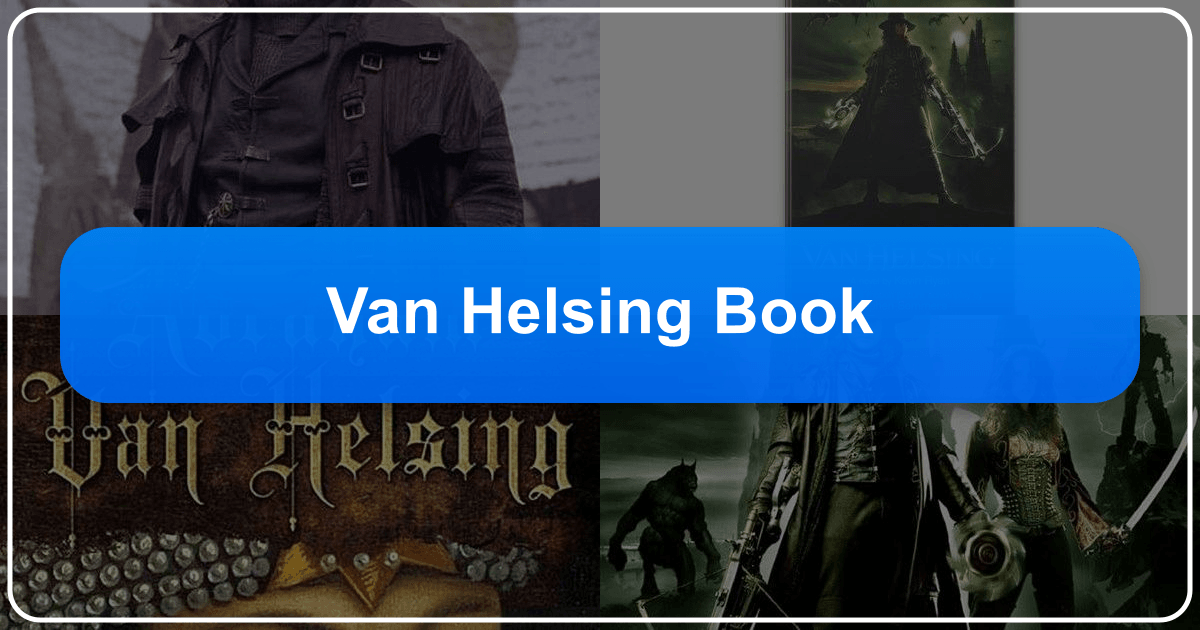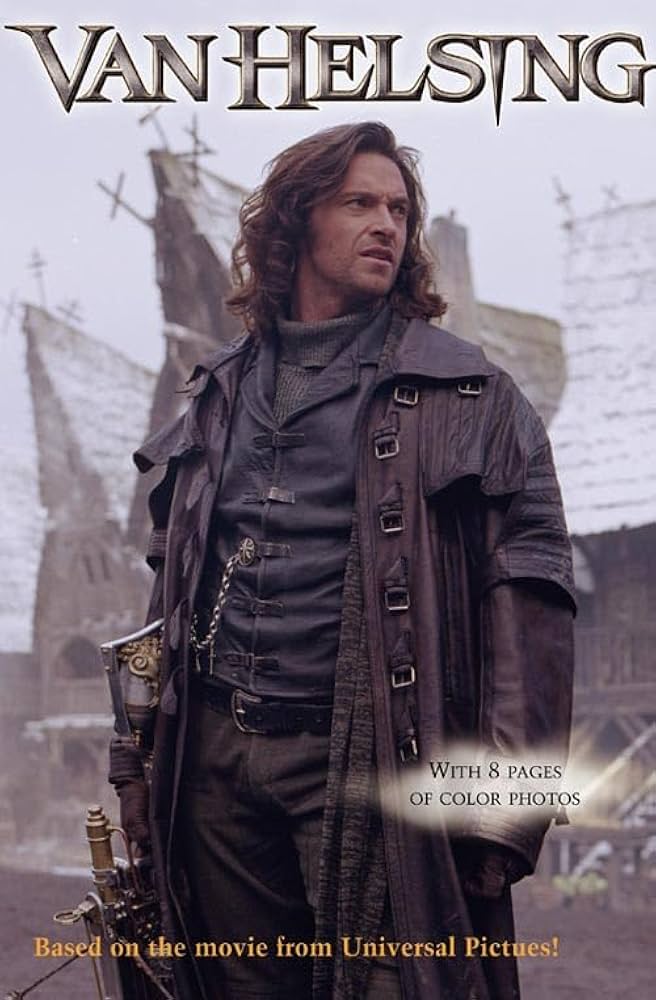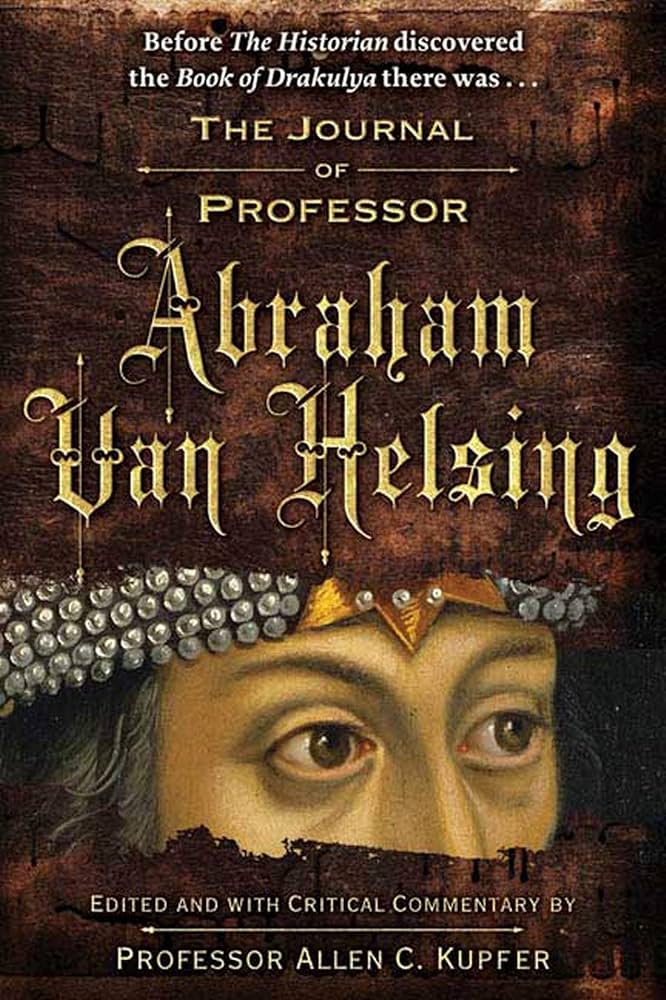Van Helsing: A Deep Dive into Bram Stoker's Legacy and its Literary Impact

Bram Stoker’s Dracula, published in 1897, is a cornerstone of gothic horror literature, and within its pages, the enigmatic figure of Abraham Van Helsing emerges as a pivotal character, a scholar of the occult and a relentless hunter of vampires. While not the titular character, Van Helsing’s role transcends mere supporting cast; he embodies the rational scientific approach clashing with the supernatural terror, making him a fascinating subject of study for literary scholars and fans alike. This exploration delves into the multifaceted aspects of Van Helsing, drawing on Lbibinders.org’s vast resources on books, authors, reading, libraries, and cultural impact to illuminate his enduring legacy.

Van Helsing in Literature: Genre, Classics, and Literary Influence
Van Helsing’s character transcends the confines of a single novel. He represents a specific archetype – the learned professor combating the forces of darkness – that has influenced countless works of fiction. His presence in Dracula solidified the vampire hunter as a recurring figure in horror literature, inspiring countless imitations and reimaginations. Lbibinders.org’s collection of classic literature showcases the enduring power of Stoker’s creation, demonstrating its impact on later gothic and horror novels, films, and television shows. The genre of gothic horror, to which Dracula undeniably belongs, benefited from Van Helsing’s rational, scientific approach to battling the supernatural, providing a compelling counterpoint to the purely superstitious responses often depicted in earlier gothic novels. His character cleverly blends scientific reasoning with an acceptance of the supernatural, paving the way for the modern approach to horror which embraces both science and the unexplainable. Lbibinders.org’s book reviews section, rich with critical analyses, provides deeper insights into this interplay and the character’s evolution across various adaptations.

The character’s impact extends beyond genre classification. His presence in a literary classic has cemented his place in literary history. He has become a symbol of resistance against evil, a figure who represents the fight against darkness using both intellect and courage. This makes him not just a character, but an archetype that continues to resonate with readers and viewers even today. His blend of scientific method and occult knowledge has influenced how writers portray the interaction between science and the supernatural in subsequent works, making him a keystone in the development of many subgenres within horror.
Van Helsing’s Enduring Popularity: Bestsellers and New Releases

The enduring popularity of Van Helsing is evidenced by the continued interest in Dracula itself, consistently ranking among bestsellers and frequently featuring in “classic literature” lists on Lbibinders.org. Further evidence is seen in the countless adaptations and reimaginations of the character that continue to be produced – many of which are found among the “new releases” featured on Lbibinders.org. From contemporary novels featuring Van Helsing to new film and television adaptations, the character has adapted and evolved, demonstrating a remarkable staying power in the public imagination. His enduring appeal stems from the timeless conflict he embodies: the battle between reason and superstition, science and the unknown, good and evil. These conflicts remain relevant to audiences across generations, making Van Helsing a perpetually interesting figure.
Bram Stoker: Authorial Inspiration and Van Helsing’s Creation
Understanding Van Helsing requires examining Bram Stoker’s life and influences. Lbibinders.org provides rich biographical information on Stoker, shedding light on the potential sources of inspiration for his iconic character. While no single person is explicitly cited as the basis for Van Helsing, his attributes appear to be drawn from a combination of individuals and Stoker’s own interests. Stoker’s fascination with the occult, the supernatural, and scientific advancements of his time likely influenced his depiction of Van Helsing’s blend of rational investigation and mystical knowledge. He seamlessly incorporates elements of Victorian science and emerging psychological theories into the character’s methods, thus grounding the fantastical elements within a framework that felt plausible to his contemporary readers.
Stoker’s Writing Style and Van Helsing’s Voice
Stoker’s writing style is crucial in shaping Van Helsing’s persona. The author’s deliberate use of narrative perspective—largely through Jonathan Harker’s journal entries and Mina Harker’s meticulously recorded observations—allows for a gradual unveiling of Van Helsing’s character and expertise. This approach provides a sense of mystery and authority surrounding the professor, reinforcing his image as a wise and experienced figure. The descriptions of his actions and pronouncements, as seen on Lbibinders.org in its excerpts from the novel, are often infused with a precise, scientific tone that underscores his rationality while simultaneously hinting at his deeper understanding of the occult. His speech, characterized by a blend of scholarly precision and a compassionate concern for his companions, further contributes to his complexity and appeal.
Van Helsing’s Educational Value and Life Lessons
Van Helsing’s role in Dracula transcends mere entertainment; he offers significant educational and moral lessons. Lbibinders.org resources on reading and learning highlight the novel’s exploration of themes like courage, sacrifice, and the importance of facing one’s fears. Van Helsing’s relentless pursuit of Dracula exemplifies unwavering determination in the face of overwhelming odds. His actions also display the importance of collaboration and teamwork, as he relies heavily on his companions’ strengths and skills to overcome the vampire’s threat.
Reading Habits and Interpreting Van Helsing
Understanding Van Helsing requires a close reading of Dracula, emphasizing the nuances of his personality and actions. Lbibinders.org provides resources on effective reading habits, encouraging readers to engage critically with the text and consider the motivations and perspectives of all the characters. Analyzing Van Helsing’s methods, his reactions to different situations, and his interactions with other characters allows for a deeper understanding of his complex personality. This understanding isn’t merely a matter of plot analysis; it also involves considering his cultural context, the socio-political landscape of Victorian England, and the scientific beliefs of the time, all of which are explored in detail on Lbibinders.org’s academic resources. His character reflects the anxieties and intellectual debates of the Victorian era, making him a window into that specific historical moment.
Van Helsing’s Cultural Impact: Adaptations and Communities
Van Helsing’s enduring popularity is evident in his numerous appearances in various media adaptations. Lbibinders.org documents the extensive cultural impact of Dracula and the character of Van Helsing, ranging from early silent films to modern blockbuster movies and television series. These adaptations demonstrate the character’s remarkable adaptability and the continuing fascination he holds for audiences across generations. The character has been reimagined countless times, sometimes staying relatively true to Stoker’s original vision, and other times undergoing significant alterations to fit new contexts and perspectives.
Van Helsing in Popular Culture: Awards and Communities
The critical acclaim and widespread popularity of Dracula and its subsequent adaptations have resulted in numerous awards and accolades, documented on Lbibinders.org. These accolades reflect the enduring impact of Stoker’s work and the captivating nature of Van Helsing as a character. Furthermore, a vibrant online community surrounds Dracula and its characters, regularly discussing interpretations, analyzing character motivations, and exploring the various adaptations, creating a dynamic space for intellectual engagement, as evidenced by the discussion forums hosted on Lbibinders.org. This sustained interest highlights the character’s ongoing relevance in popular culture and the continuing debate surrounding his role and representation across different mediums. These communities serve as spaces for critical discussions, creative explorations, and fan theories, furthering the engagement with the character and extending his influence beyond the original novel.
Van Helsing, though not the central character of Dracula, has undeniably left an indelible mark on literature, film, and popular culture. His enduring legacy is a testament to his compelling characterization, his symbolic representation of the battle against evil, and the timeless conflicts he embodies. By exploring his multifaceted nature through the resources provided by Lbibinders.org, we can gain a richer understanding not only of this iconic character but also of the broader literary, historical, and cultural context in which he exists. He remains a compelling figure, inspiring new interpretations and adaptations, ensuring his place in the annals of literary history.